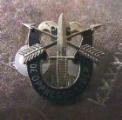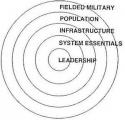Small Wars Journal readers are no doubt familiar with the debate between John Nagl and Gian Gentile about the kinds of threats the U.S. will face in the period ahead and how U.S. ground forces should prepare for those threats. (See
Shawn Brimley’s excellent summary of the argument for a refresher.)
I have concluded that both men are right; their arguments are not mutually exclusive. But if both men are right, how should the U.S. organize, train, and employ its ground forces?
The purpose of this paper is to explain how to succeed against irregular adversaries, while restoring a more credible deterrence against conventional high-intensity threats.
Main Points
1. The Long War, characterized by persistent tribal and ethnic conflicts, is a reality. Some of these conflicts will threaten U.S. interests. John Nagl is correct when he argues that the U.S. needs military forces that are specially adapted for success in persistent irregular warfare.
2. But Gian Gentile is also right – the U.S. has an interest in maintaining its military resource commitment low and its strategic flexibility high. The U.S. should not drain away its limited endurance, prestige, and resources on open-ended medium-intensity engagements in the Islamic world or anywhere else.
3. The answer is to create Nagl’s Combat Advisor Corps and use it to for Phase 0 and 1 operations – prevention, shaping, and deterrence. The more attention the U.S. gives to Phase 0-1 operations, the fewer Phase 2-4 operations America’s general purpose forces will have to fight.
4. Making a greater commitment to Phase 0-1 operations will allow the U.S. to seize the initiative in the irregular warfare domain, control US operational tempo, and regulate U.S. military resource usage.
5. Advisor Corps Phase 0-1 operations are an economy-of-force mission. When successful, they will allow the rest of the U.S. military, including the large majority of U.S. ground combat power, to prepare for major combat contingencies, thus enhancing strategic deterrence.
6. A professional and well-trained Advisor Corps will also have the mission of establishing relationships with sub-national ethnic and tribal groupings. These relationships will provide U.S. decision-makers with greater flexibility when dealing with future irregular conflicts...








 "A Sherman can give you a very nice... edge."- Oddball,
"A Sherman can give you a very nice... edge."- Oddball, 








Bookmarks